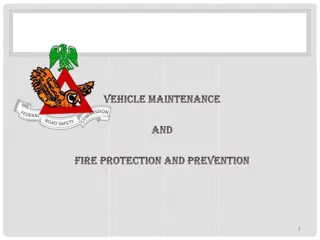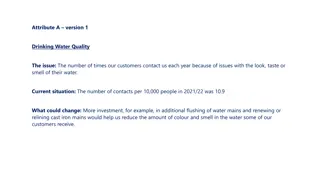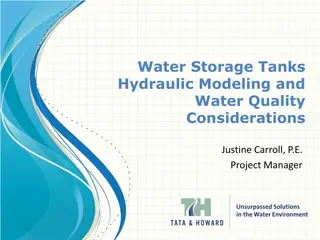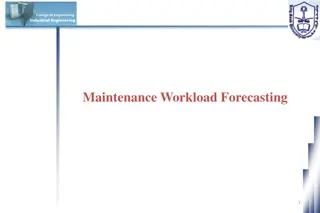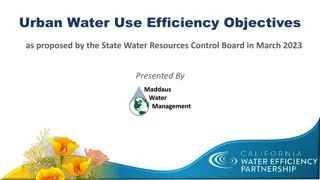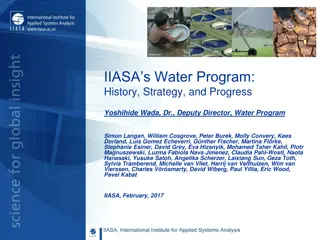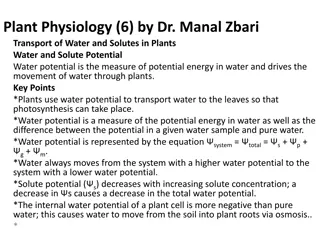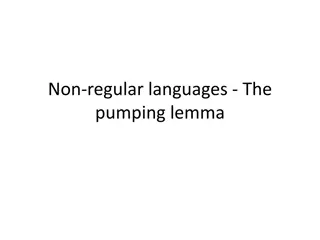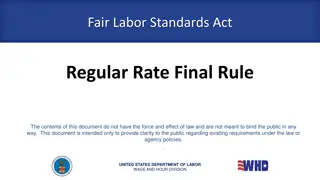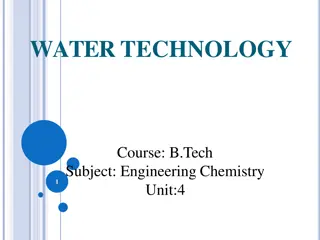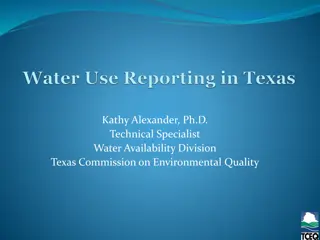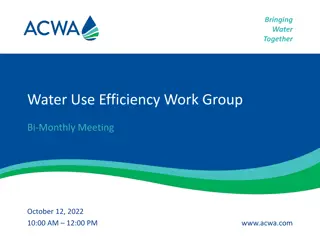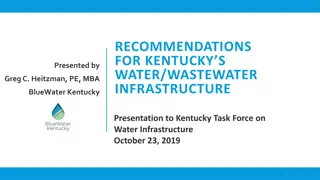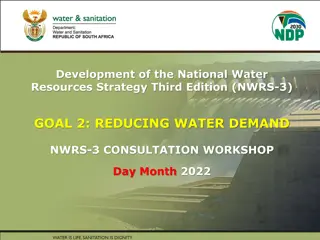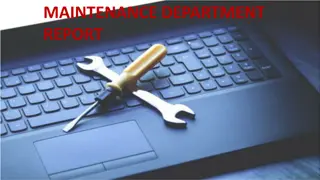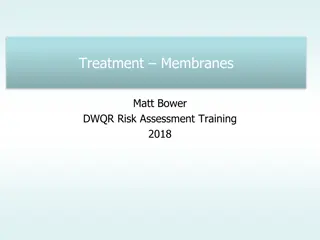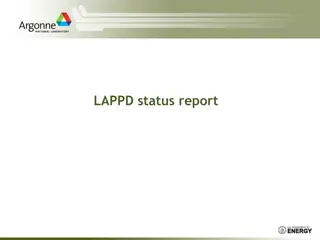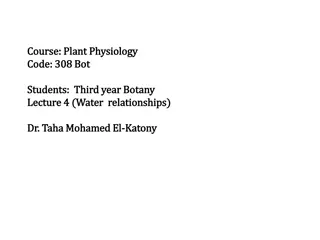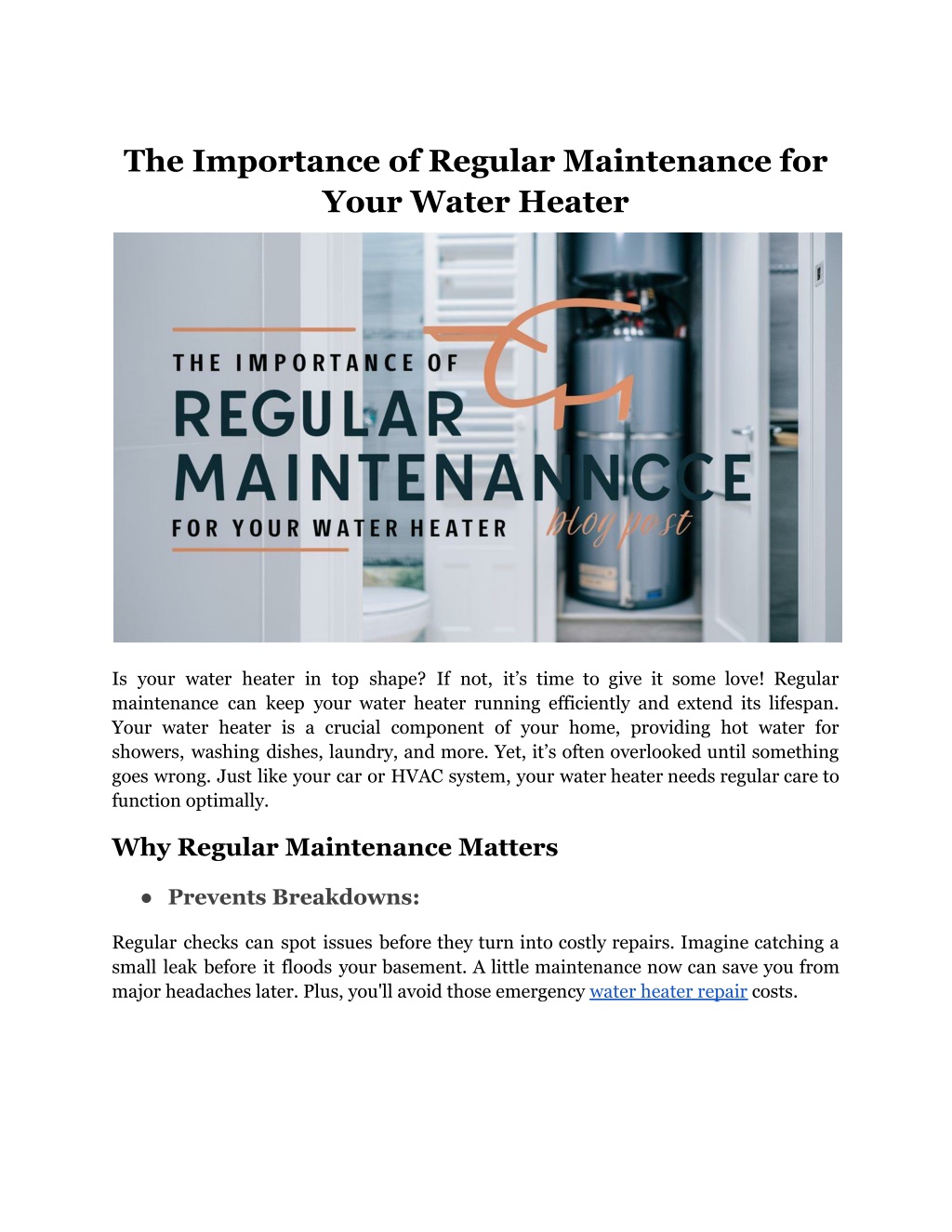
The Importance of Regular Maintenance for Your Water Heater
Learn why regular water heater maintenance is crucial for efficiency, safety, and longevity. Keep your water heater running smoothly with these tips.
Download Presentation

Please find below an Image/Link to download the presentation.
The content on the website is provided AS IS for your information and personal use only. It may not be sold, licensed, or shared on other websites without obtaining consent from the author. Download presentation by click this link. If you encounter any issues during the download, it is possible that the publisher has removed the file from their server.
E N D
Presentation Transcript
The Importance of Regular Maintenance for Your Water Heater Is your water heater in top shape? If not, it s time to give it some love! Regular maintenance can keep your water heater running efficiently and extend its lifespan. Your water heater is a crucial component of your home, providing hot water for showers, washing dishes, laundry, and more. Yet, it s often overlooked until something goes wrong. Just like your car or HVAC system, your water heater needs regular care to function optimally. Why Regular Maintenance Matters Prevents Breakdowns: Regular checks can spot issues before they turn into costly repairs. Imagine catching a small leak before it floods your basement. A little maintenance now can save you from major headaches later. Plus, you'll avoid those emergency water heater repair costs.
Saves Money: An efficient water heater uses less energy, which means lower utility bills. Over time, this can add up to significant savings. Think about what you could do with the extra cash, maybe a nice dinner out or a fun weekend getaway. Extends Lifespan: Are you thinking about how to extend the lifespan of water heater? Proper maintenance can add years to your water heater s life. Instead of replacing it every 6-8 years, you might get 10-15 years of use. This not only saves money but also reduces the hassle of dealing with a new installation. Read More Articles: What Technology Is Typically Used For Proximity Card Readers? Improves Efficiency: Clean and well-maintained heaters work better and heat water faster. No more waiting ages for a hot shower. Plus, you'll be doing your bit for the environment by reducing energy waste. Simple Maintenance Tips 1. Check the Pressure Relief Valve: This ensures your heater doesn t explode! Open and close the valve a few times to make sure it s functioning properly. It s a quick and easy check that can prevent major issues. If you're unsure how to do this many online tutorials can guide you through the process safely. 2. Flush the Tank Annually: Sediment can build up and clog your system. Flushing the tank removes this buildup, improving efficiency and extending the heater s life. It s a straightforward process that can make a big difference. You can do this yourself with a garden hose and a bucket or hire a professional for a thorough job. 3. Inspect the Anode Rod: This rod helps prevent rust from eating away at your tank. Check it every few years and replace it if it s heavily corroded. A new anode rod is much cheaper than a new water
heater. The anode rod is usually located at the top of the tank and can be easily unscrewed for inspection. 4. Adjust the Temperature: Setting the thermostat to 120 F can save energy and prevent scalding. It s a simple adjustment that can lower your energy bills and make your home safer, especially if you have young children. Lowering the temperature also reduces the risk of mineral buildup and corrosion. 5. Insulate the Tank and Pipes: Insulating your water heater and the first few feet of the hot water pipes can reduce heat loss. This keeps the water hotter for longer and reduces the amount of energy needed to heat the water, saving you money on your energy bills. 6. Check for Leaks: Regularly inspect water heater and the surrounding area for any signs of leaks. Catching leaks early can prevent water damage and help maintain the efficiency of your heater. Pay close attention to the connections and the base of the tank. 7. Test the Thermostat: Ensure your thermostat is working correctly by testing the water temperature. If the water is too hot or not hot enough, it might be time to replace the thermostat or recalibrate it. Pros and Cons of Regular Water Heater Maintenance Regular maintenance of your water heater offers a range of benefits, but it's important to weigh these against the potential drawbacks to make an informed decision. Pros Cons Lower energy bills Requires time and effort Fewer repairs needed Possible upfront costs for parts Longer lifespan for your heater Need to remember maintenance tasks Improved safety Regular attention needed
Better water quality May require professional help Signs Your Water Heater Needs Immediate Attention Maintaining your water heater regularly is crucial, but there are times when it needs immediate attention. Ignoring these signs can lead to costly water heater repairs or even replacement. Here are the warning signals to watch out for: 1. Inconsistent Water Temperature If your water fluctuates between hot and cold, it could indicate a problem with the heating element or sediment buildup. This inconsistency can make daily tasks like showering frustrating and may signal that your heater needs a thorough inspection or maintenance. 2. Discolored Water Rusty or murky water is a sign that your water heater or the pipes are corroding. This can not only affect the quality of your hot water but also potentially lead to health issues. Flushing the tank might help, but persistent discoloration means it's time to check the anode rod or consider a replacement. 3. Unusual Noises Banging, popping, or rumbling noises from your water heater are often due to sediment buildup at the bottom of the tank. When this sediment heats up, it causes the water to boil and create noise. Regularly flushing the tank can prevent this, but if the noise continues, professional help might be needed. 4. Leaks Around the Unit Water pooling around your water heater is a clear sign of trouble. Leaks can occur due to various issues, such as a faulty pressure relief valve, corrosion, or a failing tank. Immediate action is required to prevent water damage and more extensive repairs. 5. Age of the Water Heater If your water heater is over 10-15 years old, it's more prone to problems. Regular maintenance can extend its life, but an old unit that frequently breaks down may need to be replaced. Newer models are more energy-efficient and come with advanced safety features.
Expert Tricks for Water Heater Care Install a Water Softener Hard water can cause sediment buildup and reduce the efficiency of your water heater. Installing a water softener can help prevent mineral deposits, keeping your heater running smoothly. Use a Timer A water heater timer can be set to turn off the heater during periods of low demand, such as overnight or when you re at work. This reduces unnecessary energy consumption and extends the lifespan of your unit. Insulate Older Units Older water heaters can benefit from added insulation. Wrapping your tank in a water heater blanket can reduce heat loss, keeping your water hot without extra energy use. Consider a Tankless Water Heater If your current water heater is nearing the end of its life, consider upgrading to a tankless water heater. These units heat water on demand, eliminating the need to keep a large tank of water hot at all times, and they are more energy-efficient. Understand Your Water Heater s Warranty Familiarize yourself with your water heater s warranty. Regular maintenance is often required to keep the warranty valid, and understanding the terms can save you from unexpected costs. Read More Articles: How Do I Know What Type of Proximity Card I Have? Comparison Table: Maintenance vs. No Maintenance Feature Regular Maintenance No Maintenance Lifespan 10-15 years 6-8 years Energy Efficiency High Low
Repair Costs Low High Water Quality Clear and hot Rusty inconsistent and Safety Enhanced Risk malfunctions of How to Prevent Problems 1. Schedule Regular Maintenance: Ensure annual checks and flushing to remove sediment and inspect parts like the anode rod. 2. Monitor for Signs: Stay alert to any changes in water temperature, color, and noise from the heater. 3. Professional Inspections: Hire professionals for thorough inspections, especially if your heater shows signs of aging or frequent issues. 4. Upgrade When Necessary: Don t hesitate to replace old, inefficient units with modern, energy-saving models. Conclusion Regular maintenance of your water heater is not just about prolonging its life but also about ensuring efficient performance, safety, and lower energy bills. Ignoring maintenance can lead to a host of problems, including higher costs and potential hazards. Stay proactive with regular checks and professional inspections to keep your water heater in top shape. Are you ready to keep your water heater running efficiently and avoid unexpected breakdowns? At CLT Appliance Repair, we specialize in comprehensive water heater maintenance and water heater installation that ensures your unit operates at peak performance. Frequently Asked Questions How often should I perform maintenance on my water heater? It's recommended to perform basic maintenance, such as flushing the tank and checking the anode rod, at least once a year. Regular maintenance helps ensure your water heater operates efficiently and extends its lifespan.
Can I perform water heater maintenance myself, or should I hire a professional? While many maintenance tasks can be performed by homeowners, such as flushing the tank and adjusting the temperature, more complex tasks like replacing the anode rod or diagnosing issues should be handled by a professional plumber. What is the average lifespan of a water heater? The average lifespan of a water heater is typically between 10-15 years. Regular maintenance can help extend this lifespan, but if your unit is older and experiencing frequent issues, it may be time for a replacement. Site Article: The Importance of Regular Maintenance for Your Water Heater

